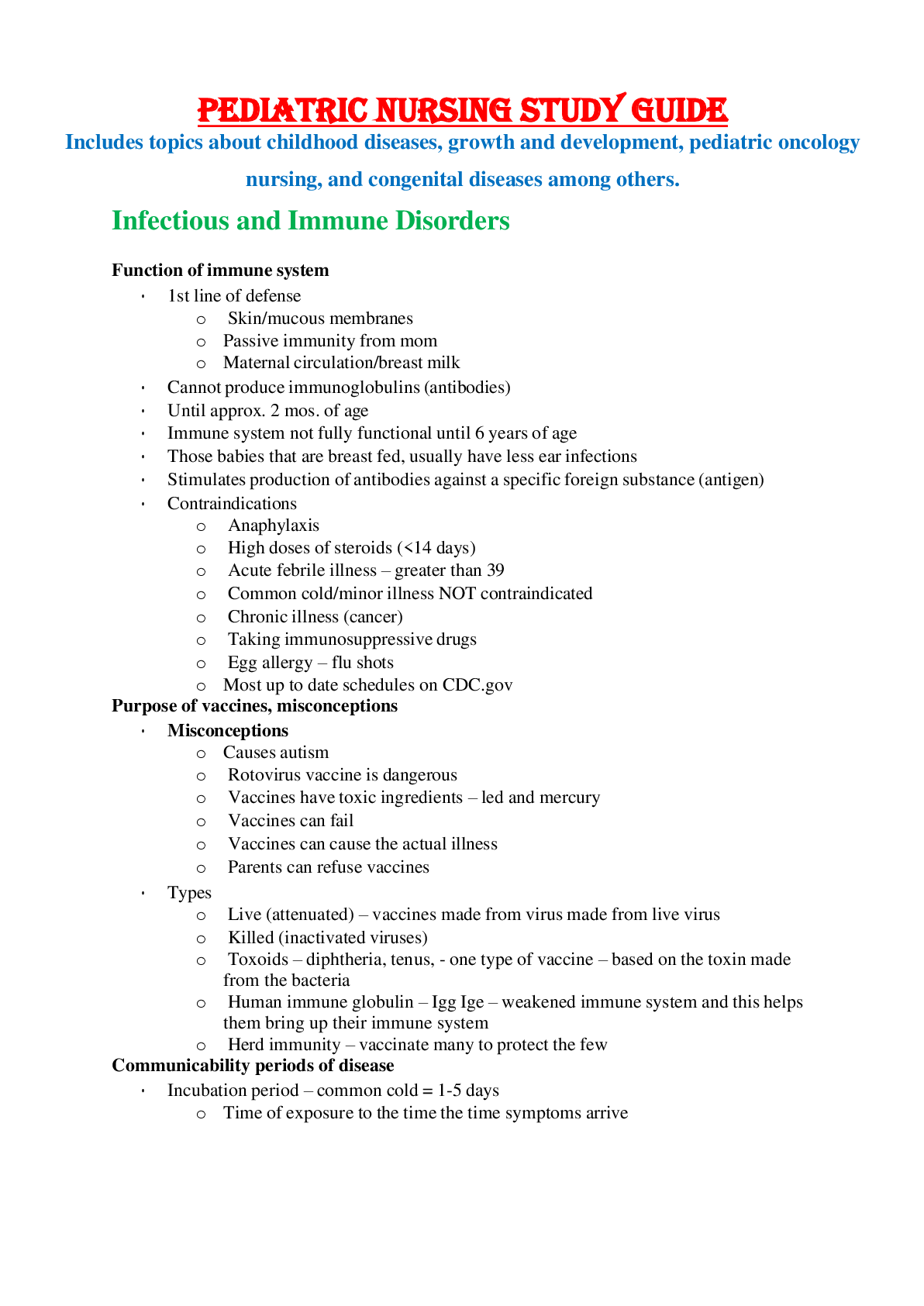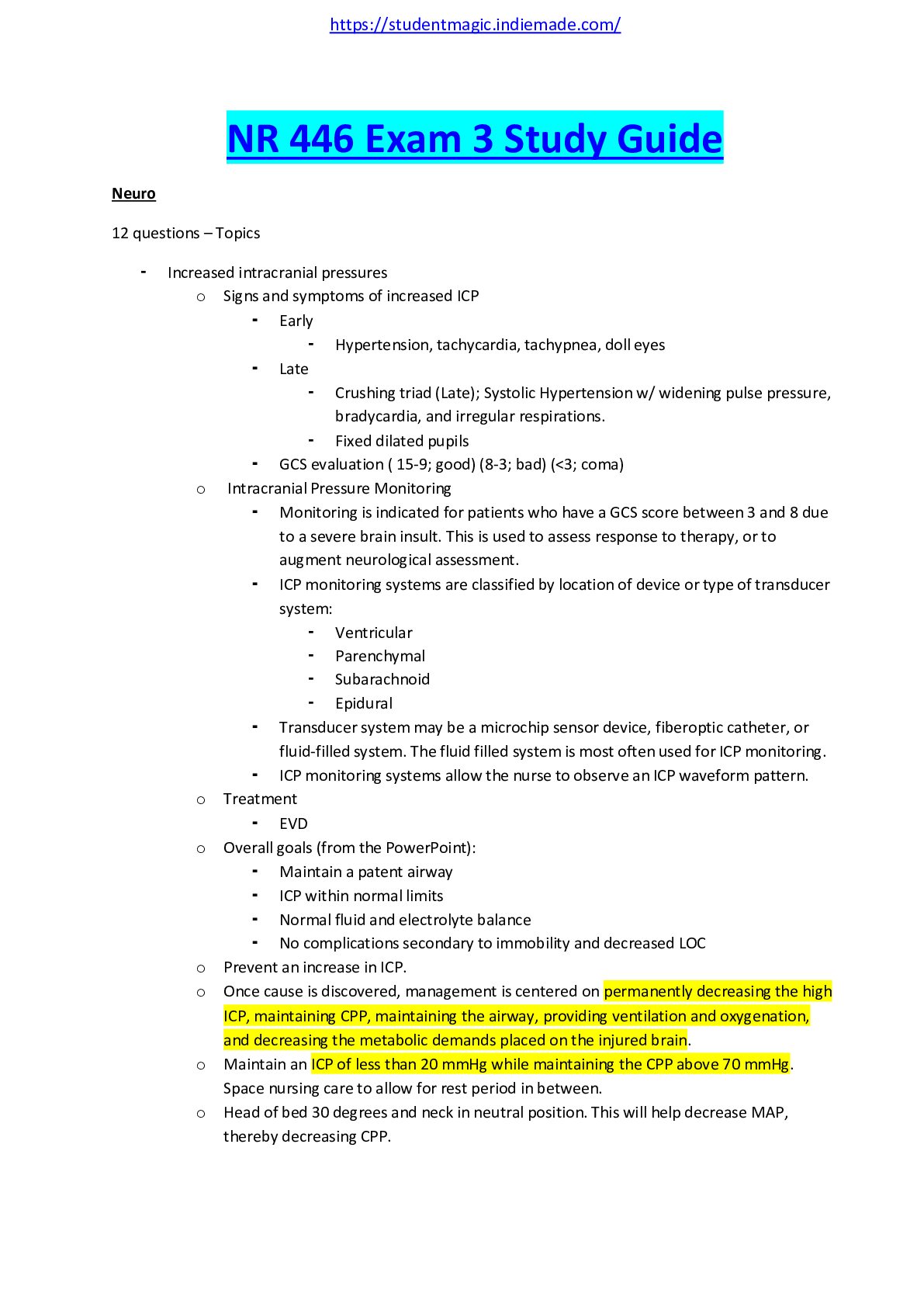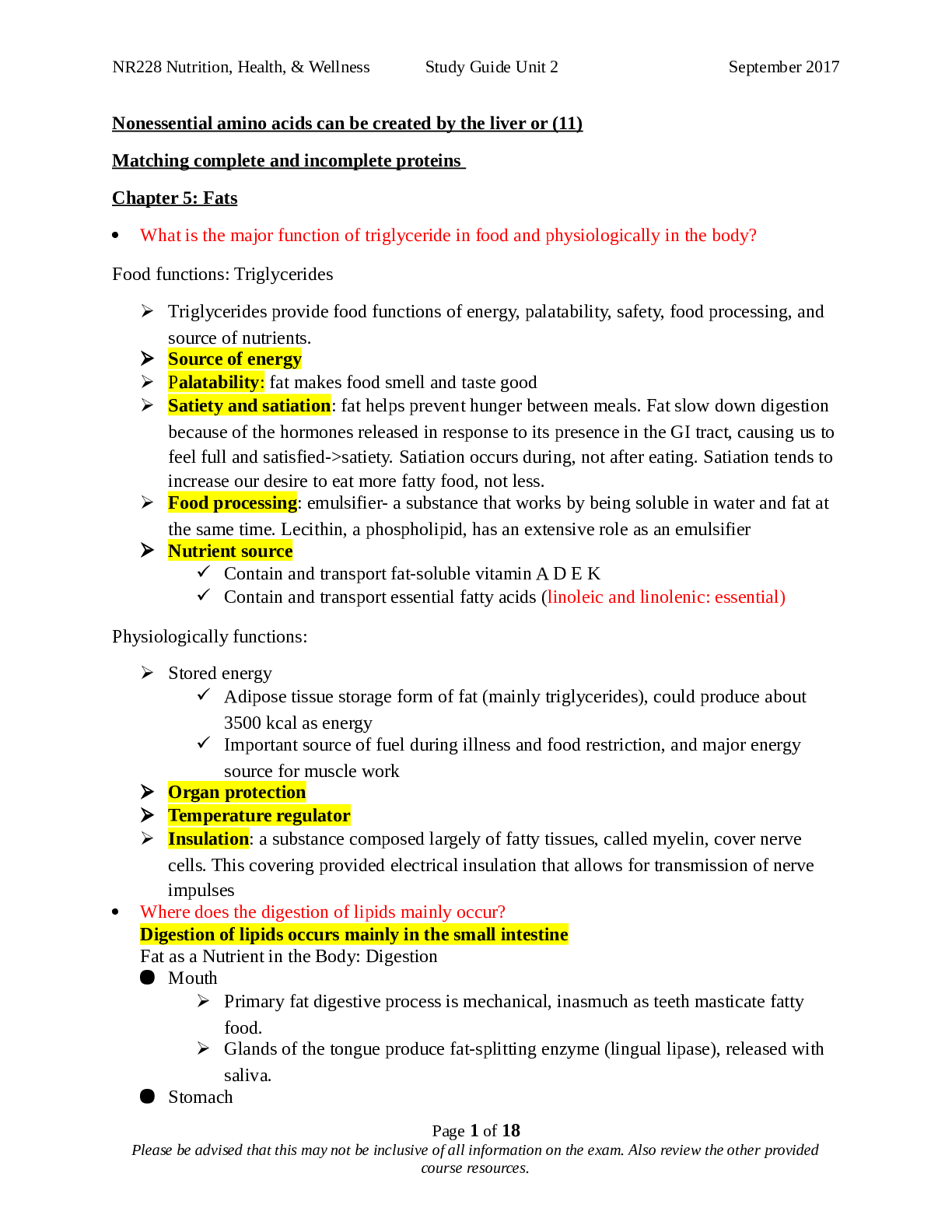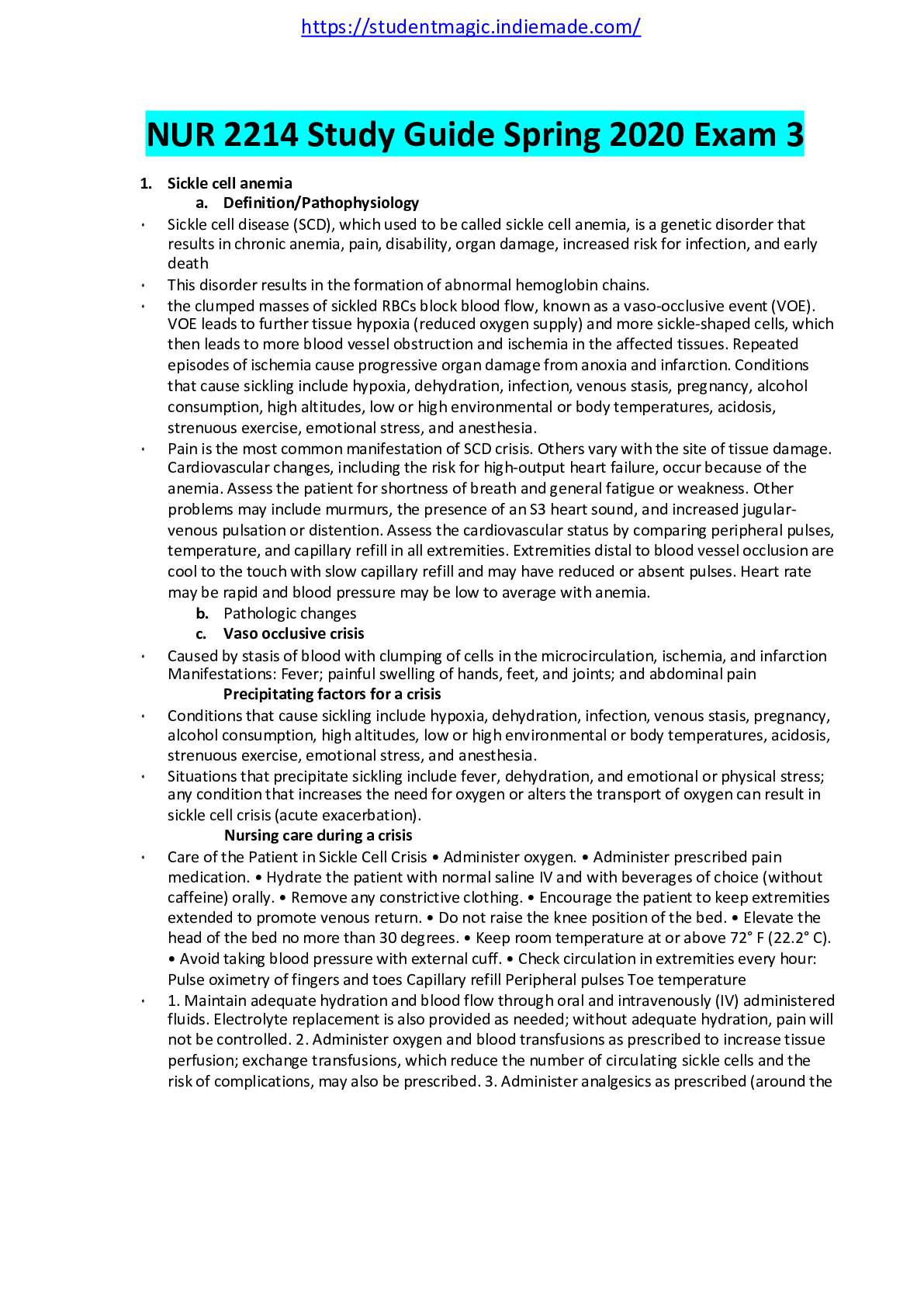Music > STUDY GUIDE > MUSI 2300: Introduction to World Music Spring 2020 North Lake College - MUSI 13012020-SPRING_2202-M (All)
MUSI 2300: Introduction to World Music Spring 2020 North Lake College - MUSI 13012020-SPRING_2202-MUSI-2300-001.
Document Content and Description Below
MUSI 2300: Introduction to World Music Spring 2020 Instructor Information Instructor: Karen (Kathy) Draves Office Number: FA366 Office Telephone Number: 817-212-7145 (Music Department) Email ... Address: [email protected] Faculty Profile: My Faculty Profile Office Hours: By email and appointment Course Information Section Information: MUSI 2300.001 MUSI 2300.002 Time and Place of Class Meetings: This is an all online, distance education course offered on Canvas Description of Course Content: This course satisfies the University of Texas at Arlington Core Curriculum requirement in Creative Arts. The course will offer students an introduction to the many varied and fascinating forms of music found around the world. Through the use of sound recordings, videos, and live performers, students will have the opportunity to experience the unique qualities of each type of music. There are no prerequisites. The course has been structured so that no previous knowledge of music is necessary.Student Learning Outcomes: The student will become aware of the numerous and unique ways music reflects various cultures. The student will be able to recognize basic instrument sounds, and structural components of the music systems from India, Japan, Indonesia, Africa, the America’s and the Caribbean. General Learning Objectives Critical thinking skills: to include creative thinking, innovation, inquiry, and analysis, evaluation and synthesis of information Communication skills: to include effective development, interpretation and expression of ideas through written, oral and visual communication Teamwork: to include the ability to consider different points of view and to work effectively with others to support a shared purpose or goal Social Responsibility: to include intercultural competence, knowledge of civic responsibility, and the ability to engage effectively in regional, national, and global communities Direct learning outcomes in relation to learning objectives Critical thinking skills: Students will gain familiarity with basic musical elements such as pitch, texture, rhythm, pulse, and harmony. They will be able to define and aurally recognize these elements in the unique music of the cultures studied in class. Through the aural analysis of the different elements of music and their interaction, students will be able to recognize and differentiate the music of different cultures such as India, Asia, Middle East, Africa, and the Americas. Through a research paper based on a world music event the student will develop communication, writing, and research skills in relation to culture and music. Learning environment: Online videos/PowerPoint presentations Text book Class discussion (through Canvas forums/boards) Research paper Assessment method: Chapter Tests Research paper (independent)Communication skills: Through Canvas forums/boards, students will be able to discuss style, cultural differences, musical elements, and offer ideas and opinions on each region. Students will also be able to independently develop communication, writing and research skills in relation to music and culture through an independent research paper. Learning environment: Canvas forums/boards Research paper Assessment method: Rubric Teamwork: Through the Canvas forums/boards, students will be able to discuss style, cultural differences, musical elements, and offer ideas and opinions on each region. Students will develop communication and skills in relation to music and culture as well as team work participation. This information will be used to facilitate the independent research paper. Learning Environment: Canvas forums/boards Assessment method: Rubric Social Responsibility: Students will study the impact of different cultural societies on music and the impact music has on different cultures. Students will observe the similarities and differences between cultures and how they view and “understand” music. Students will study the social aspects that result in changes in music styles in the cultures of India, Africa, Middle East, Asia, and the Americas. Learning Environment: Online videos/PowerPoint presentations Text book Class discussion (through Canvas forums/boards) Research paper Assessment method: Chapter Tests Research paper (independent) [Show More]
Last updated: 1 year ago
Preview 1 out of 28 pages
Instant download

Instant download
Reviews( 0 )
Document information
Connected school, study & course
About the document
Uploaded On
Apr 10, 2021
Number of pages
28
Written in
Additional information
This document has been written for:
Uploaded
Apr 10, 2021
Downloads
0
Views
72

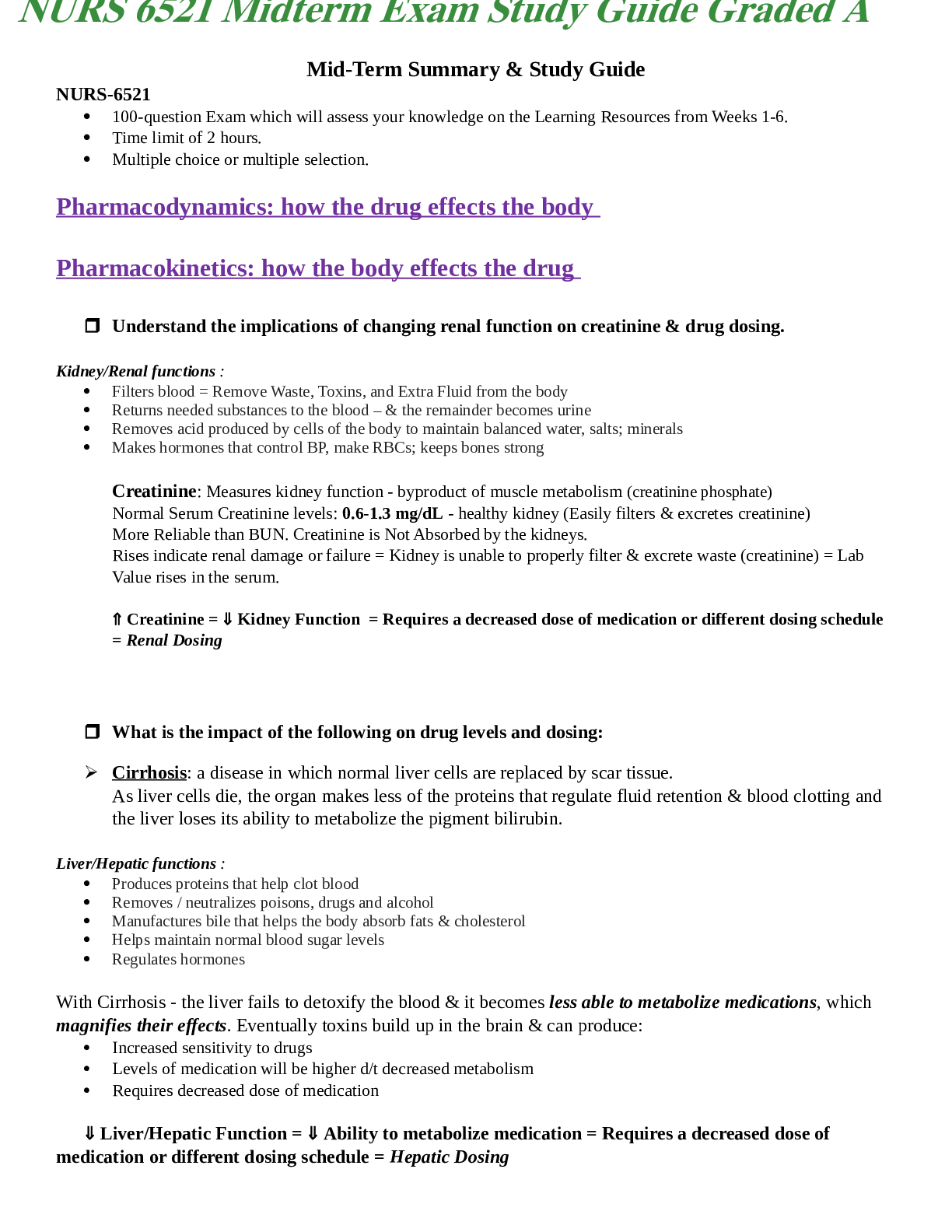
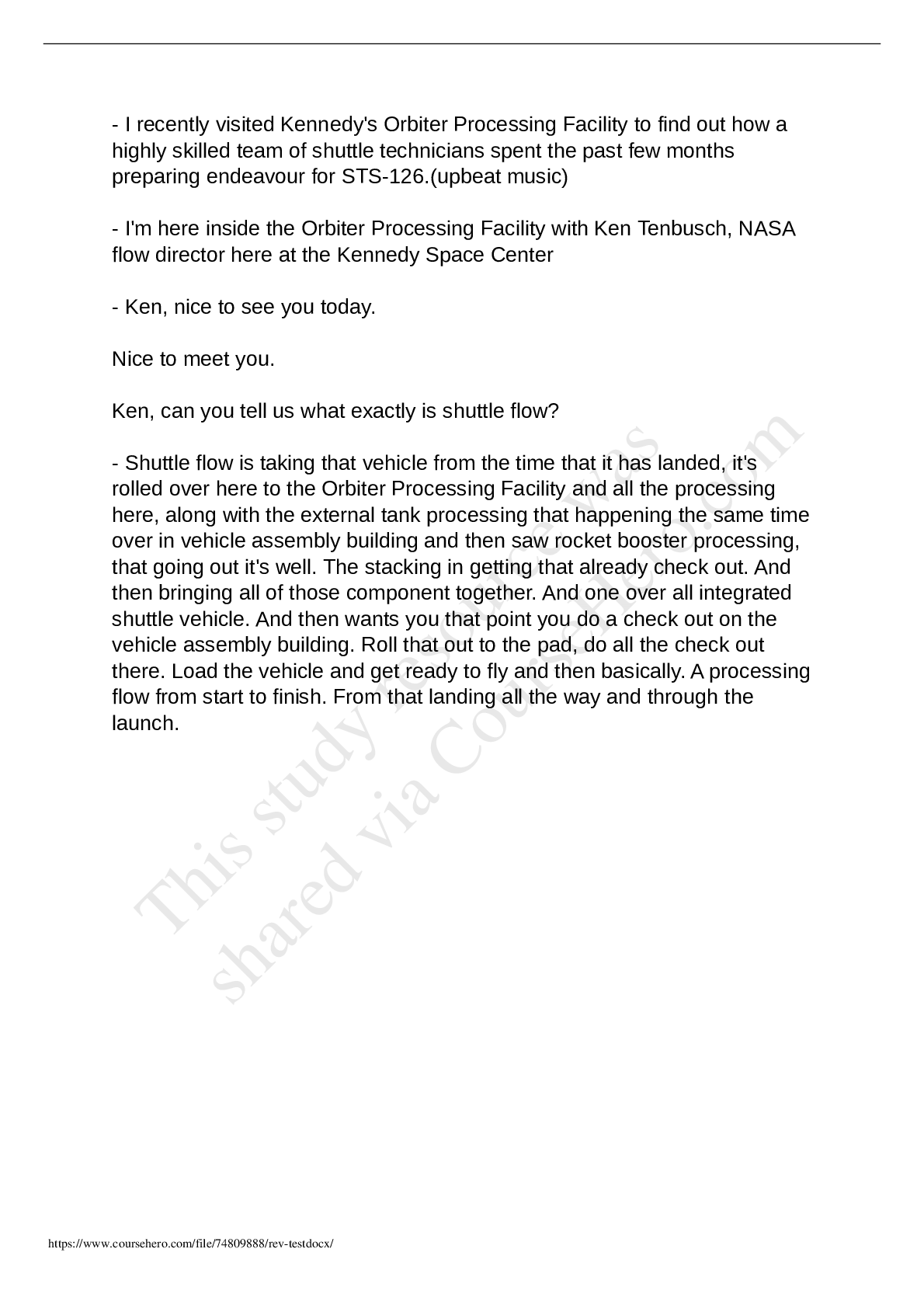
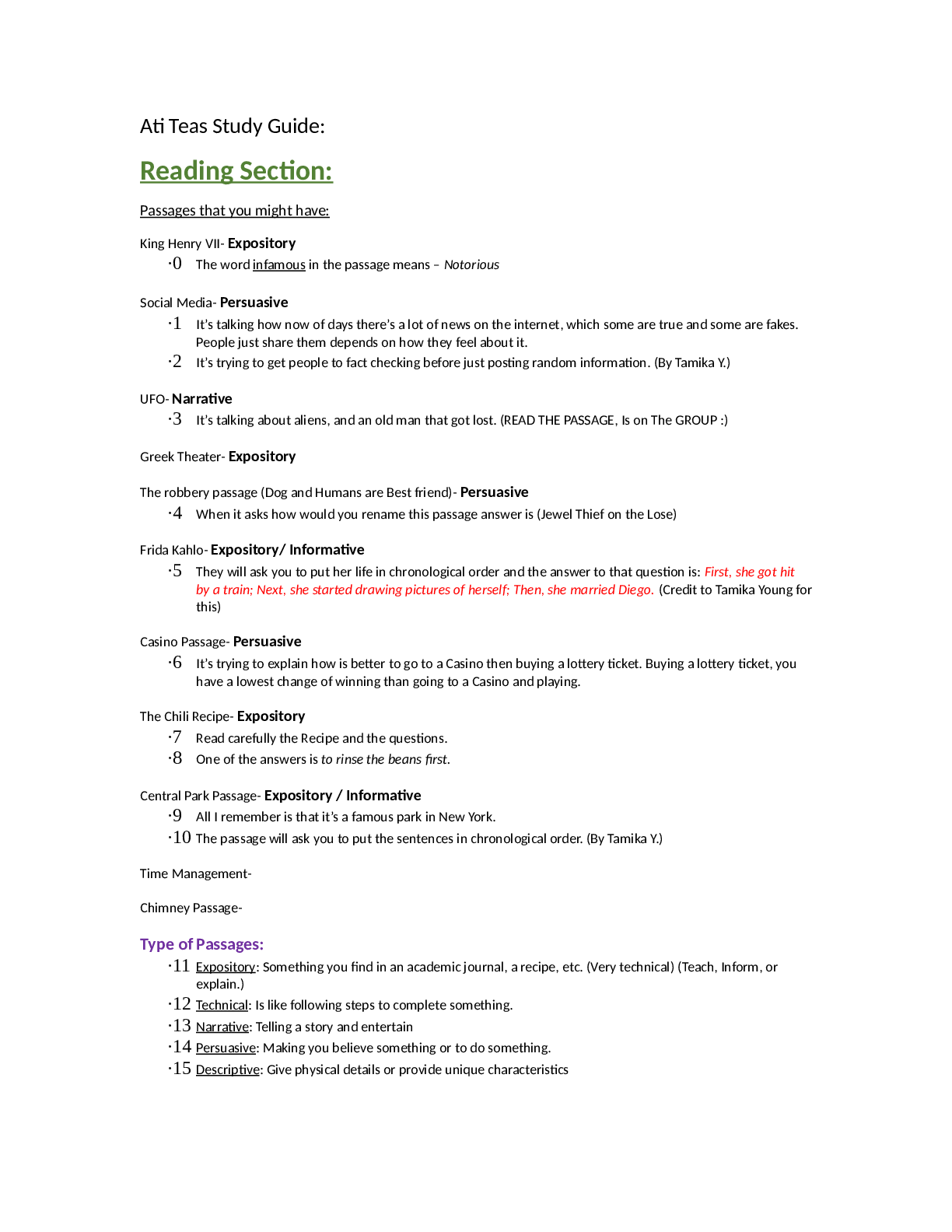
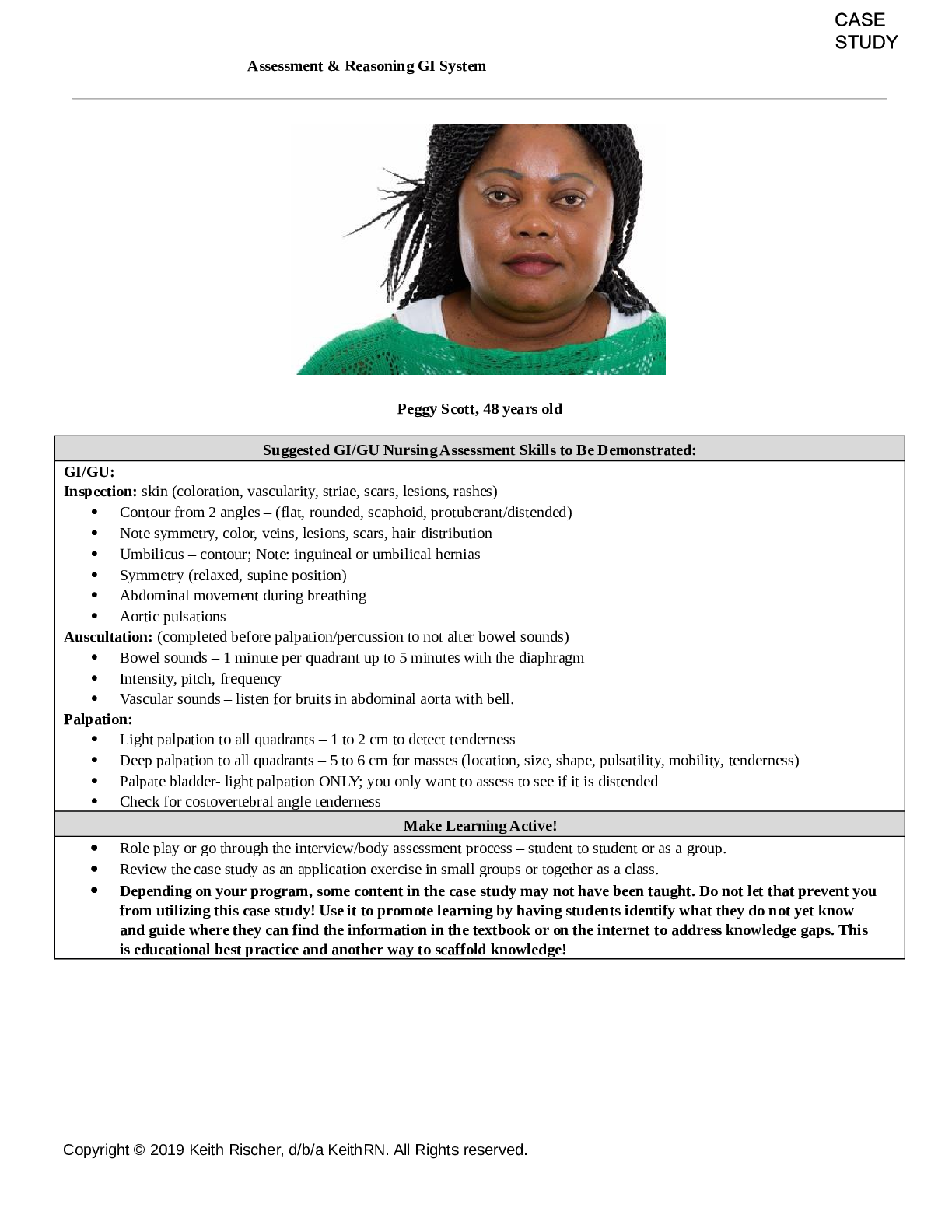


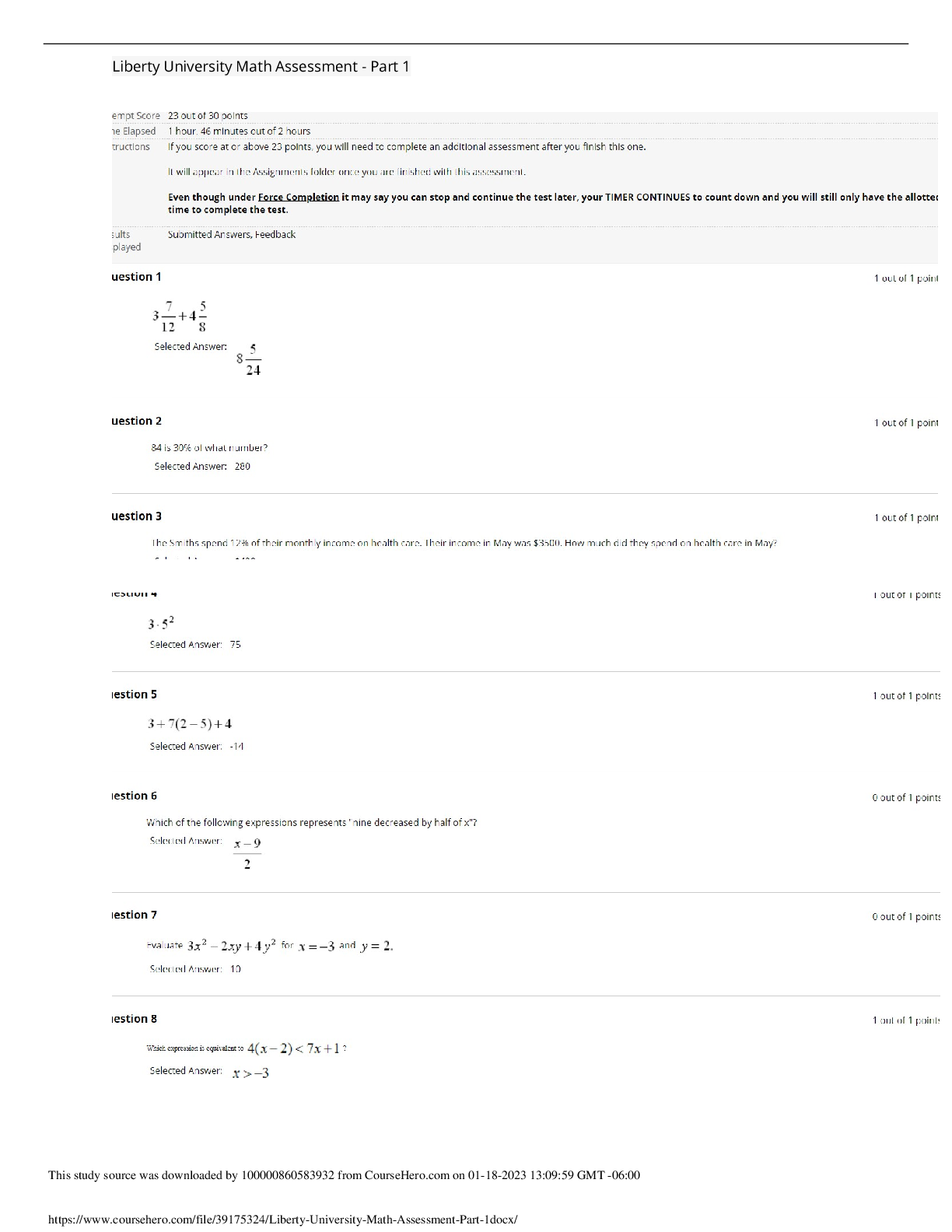

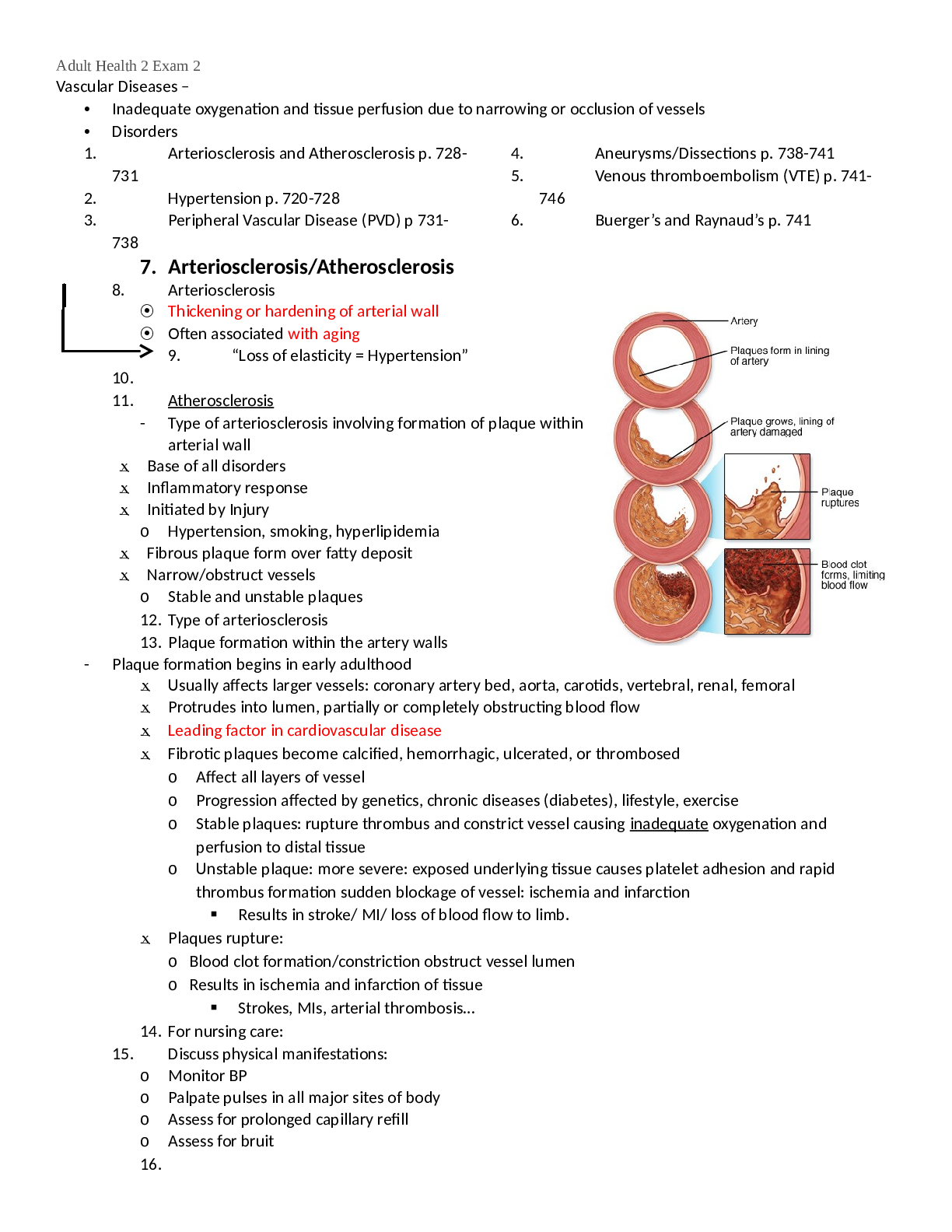
.png)


.png)

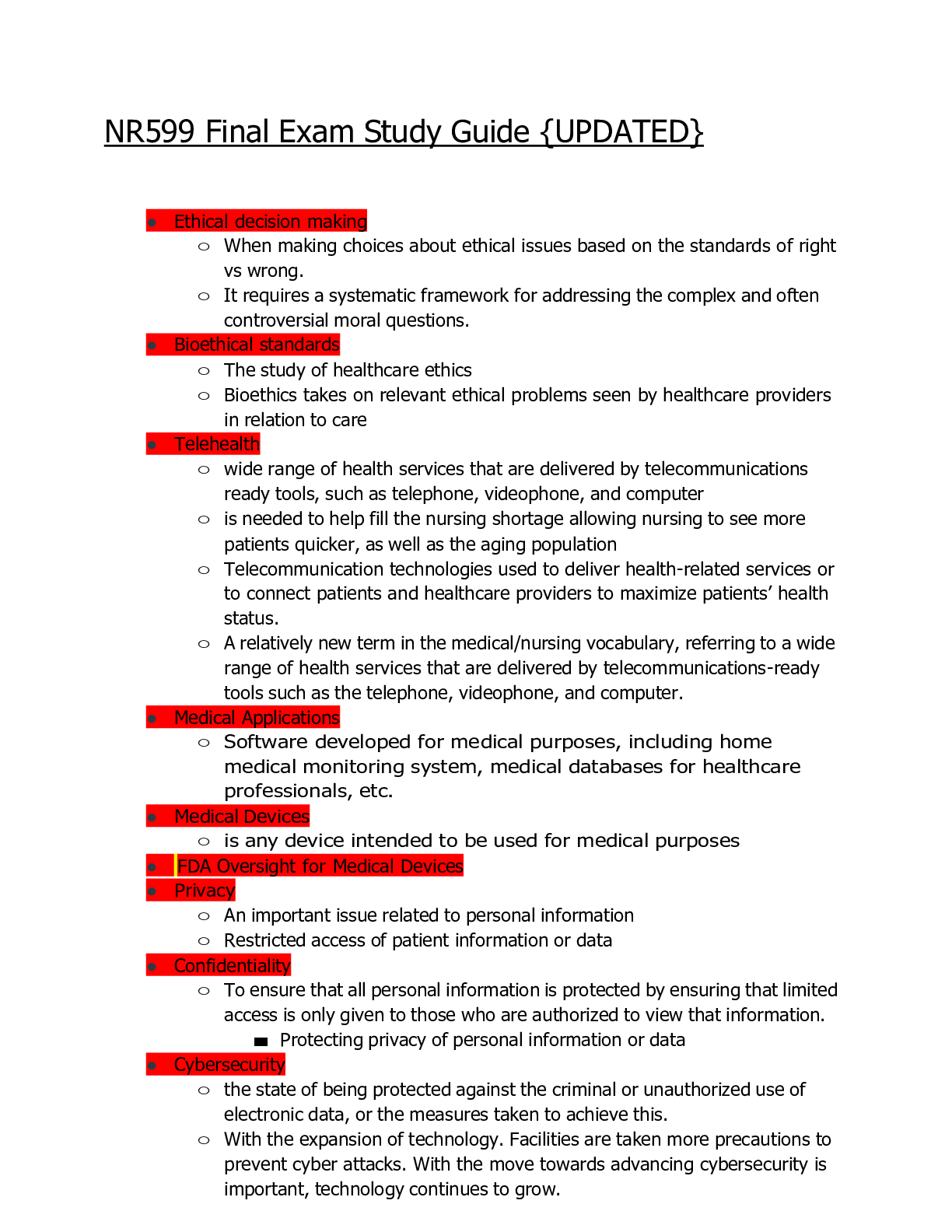
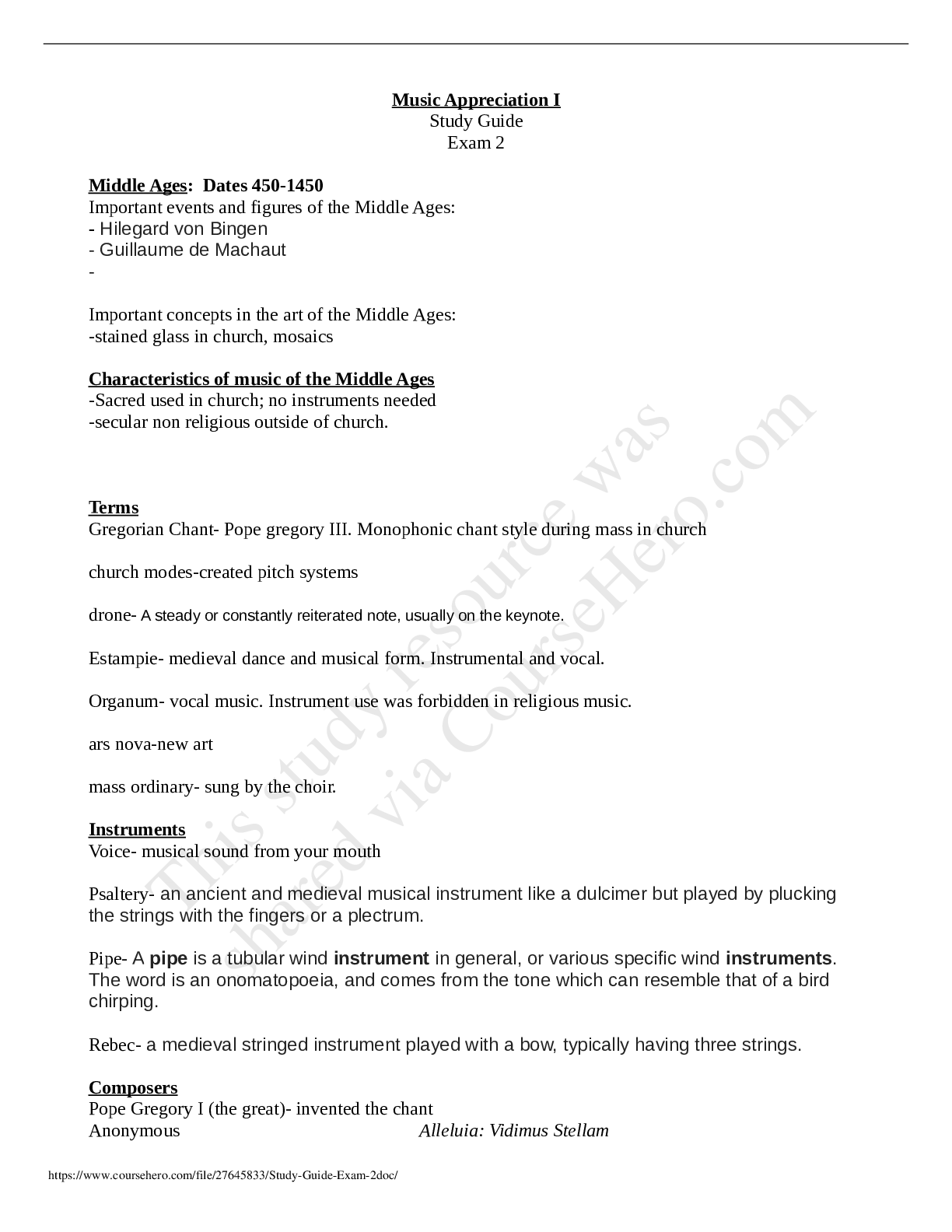
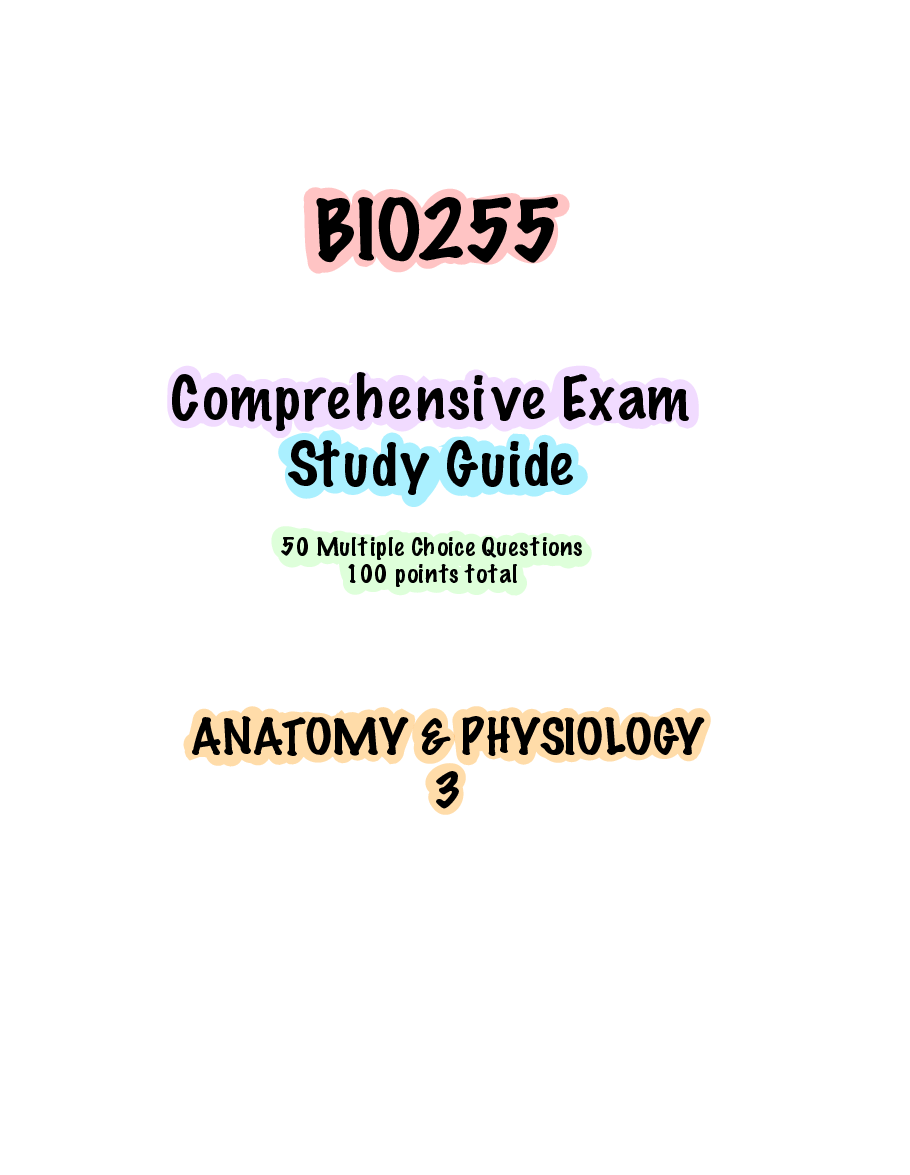
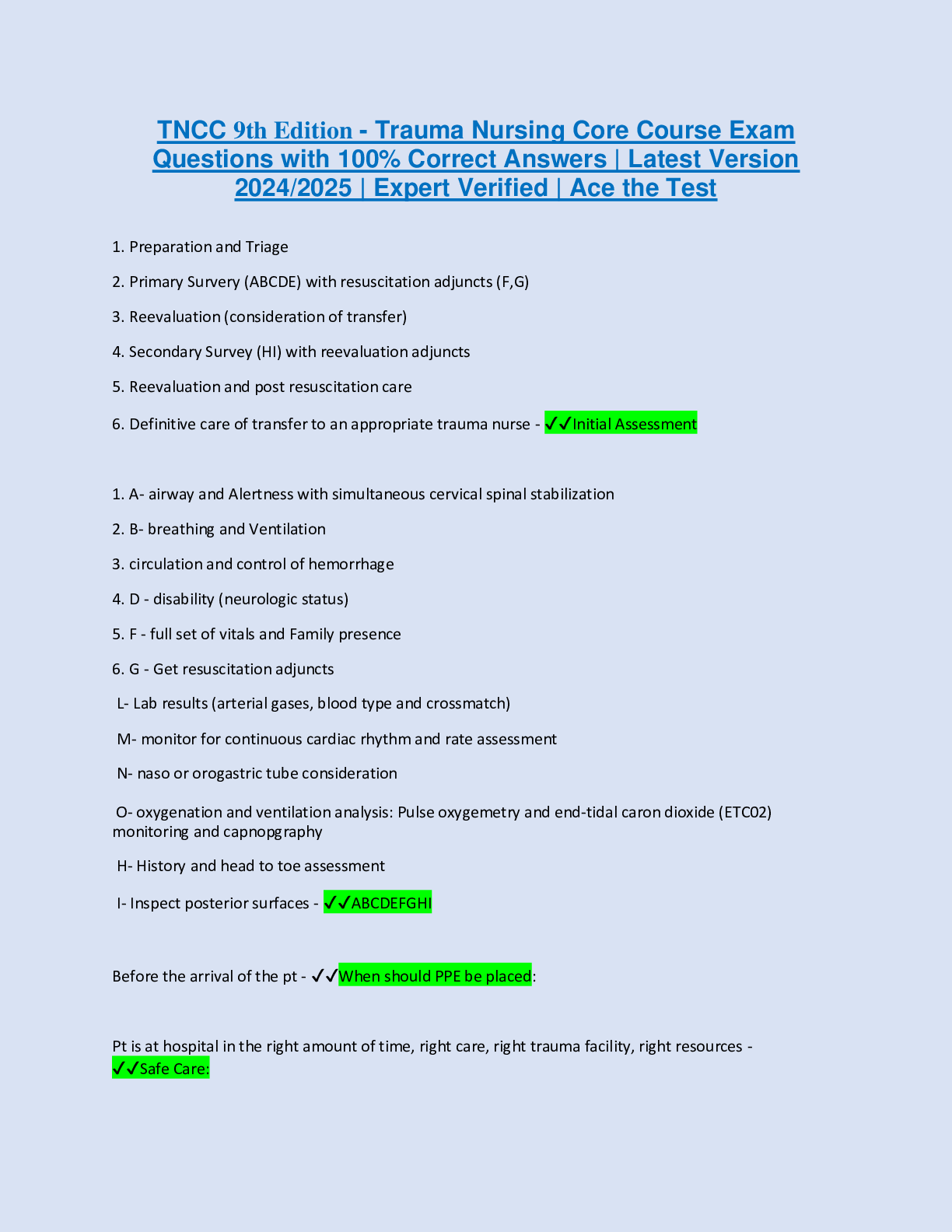
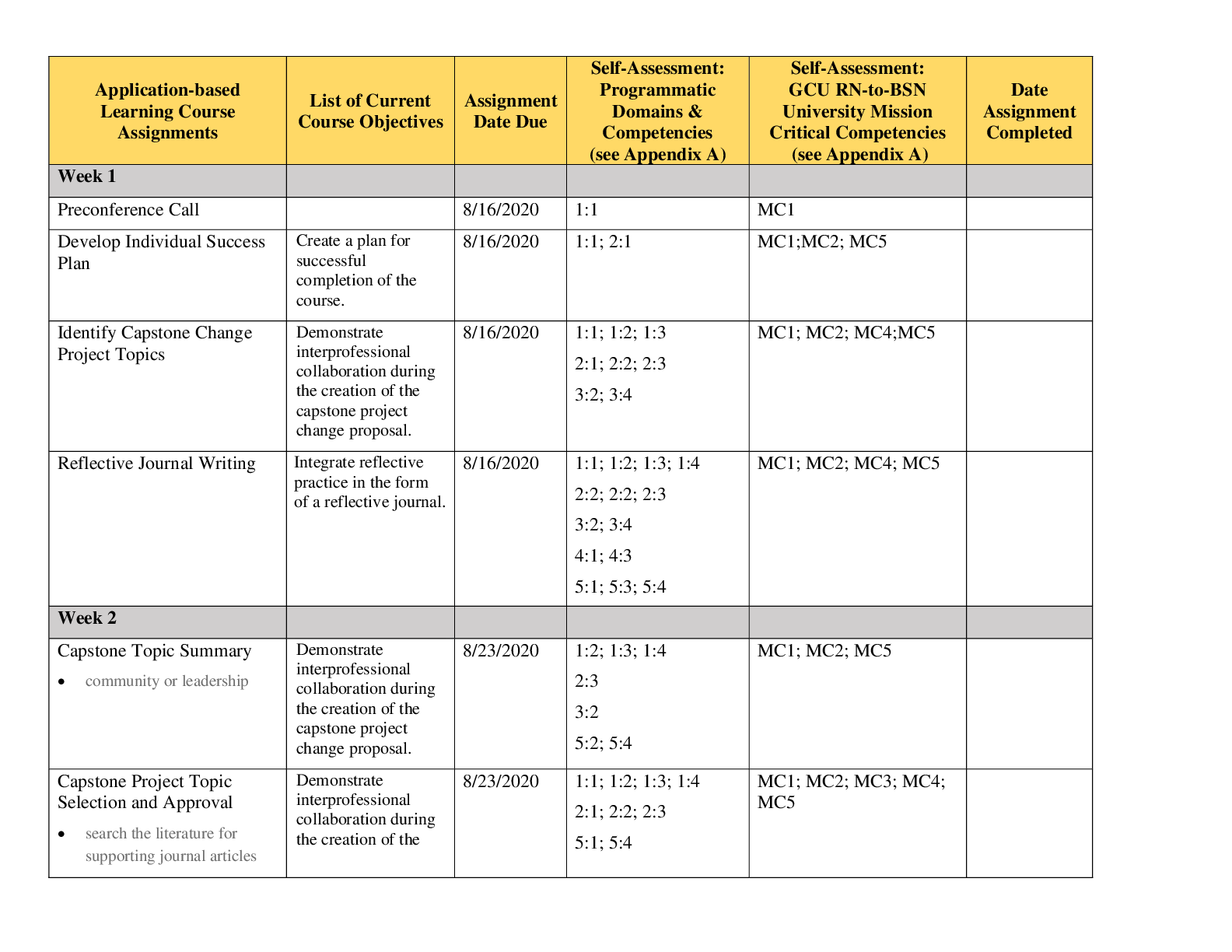
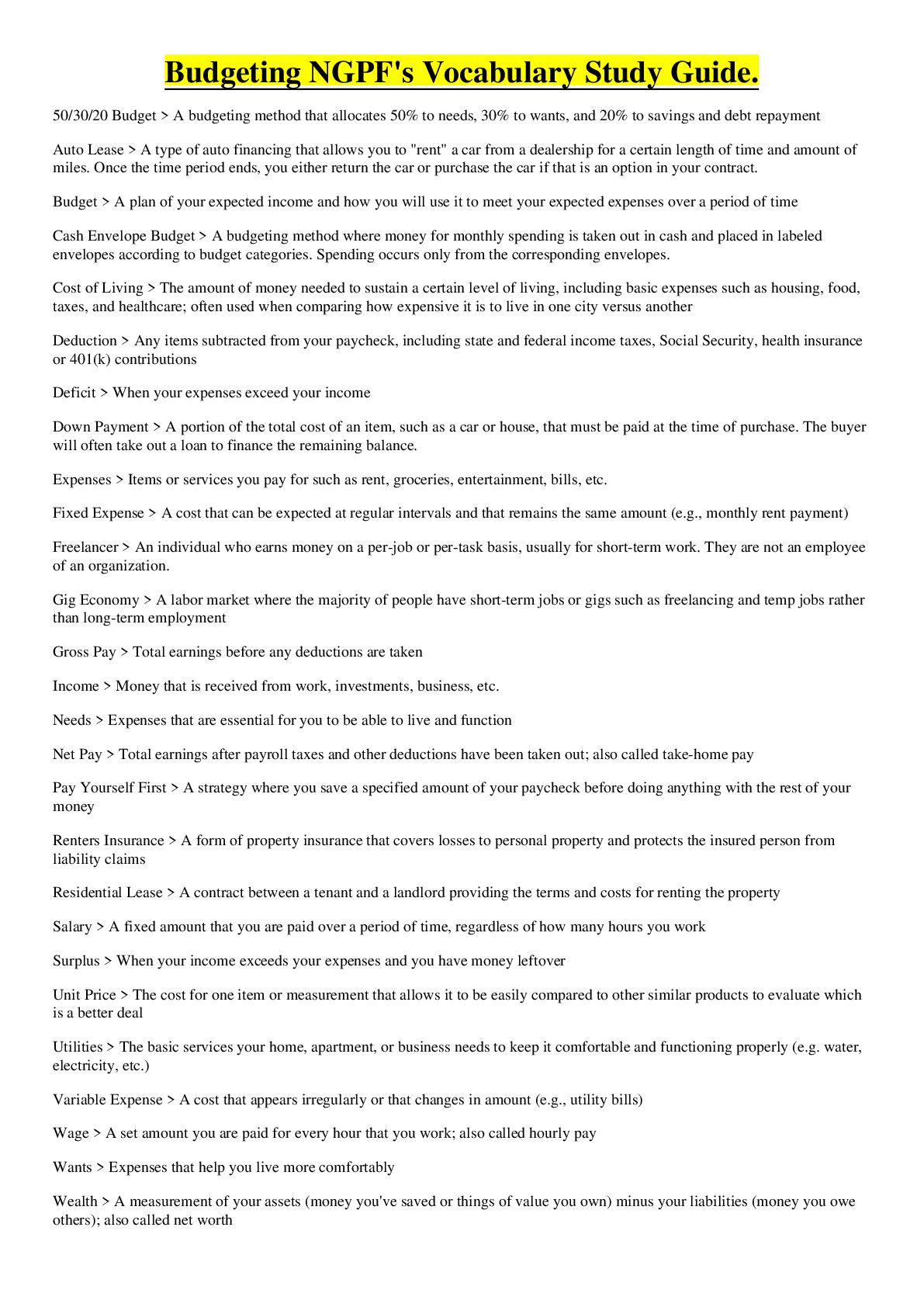
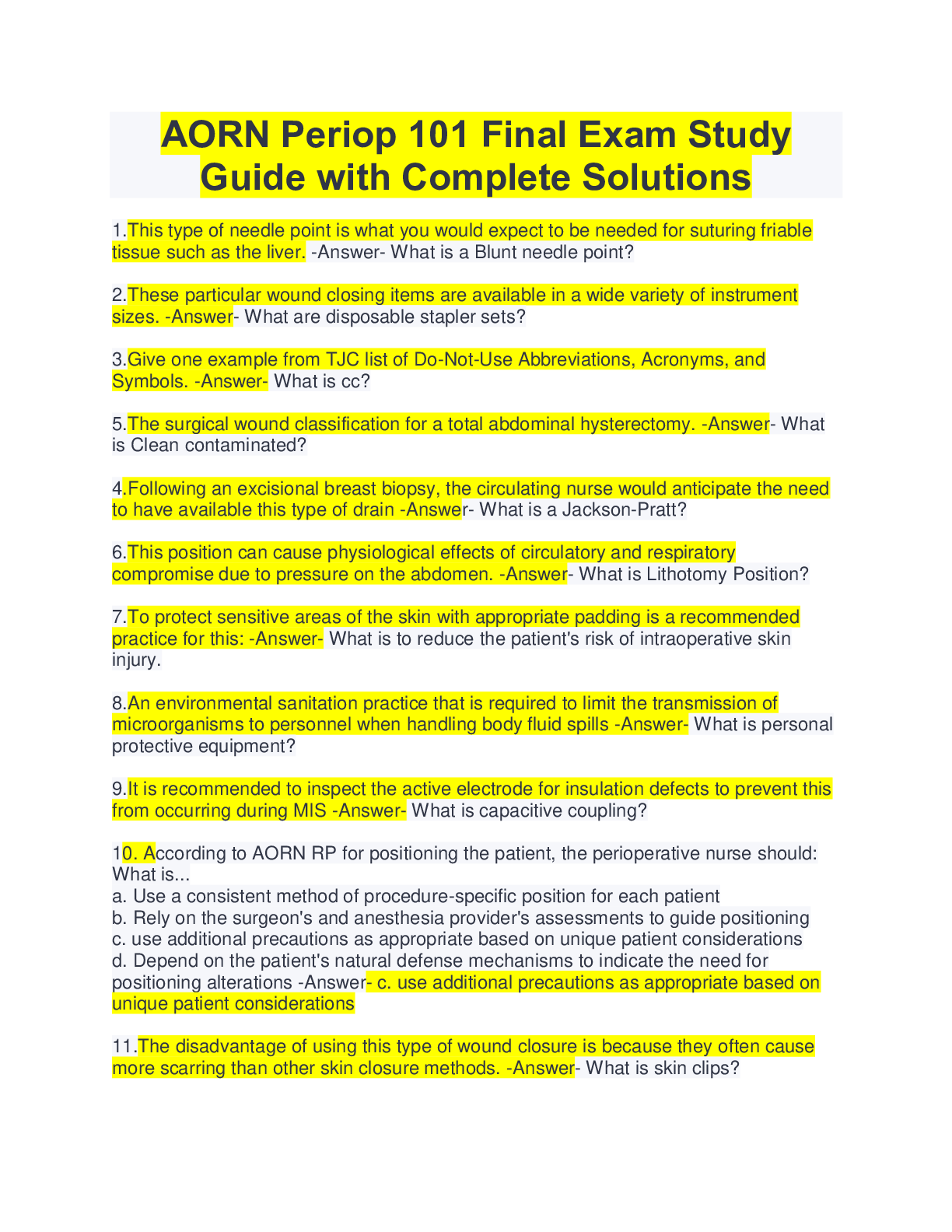
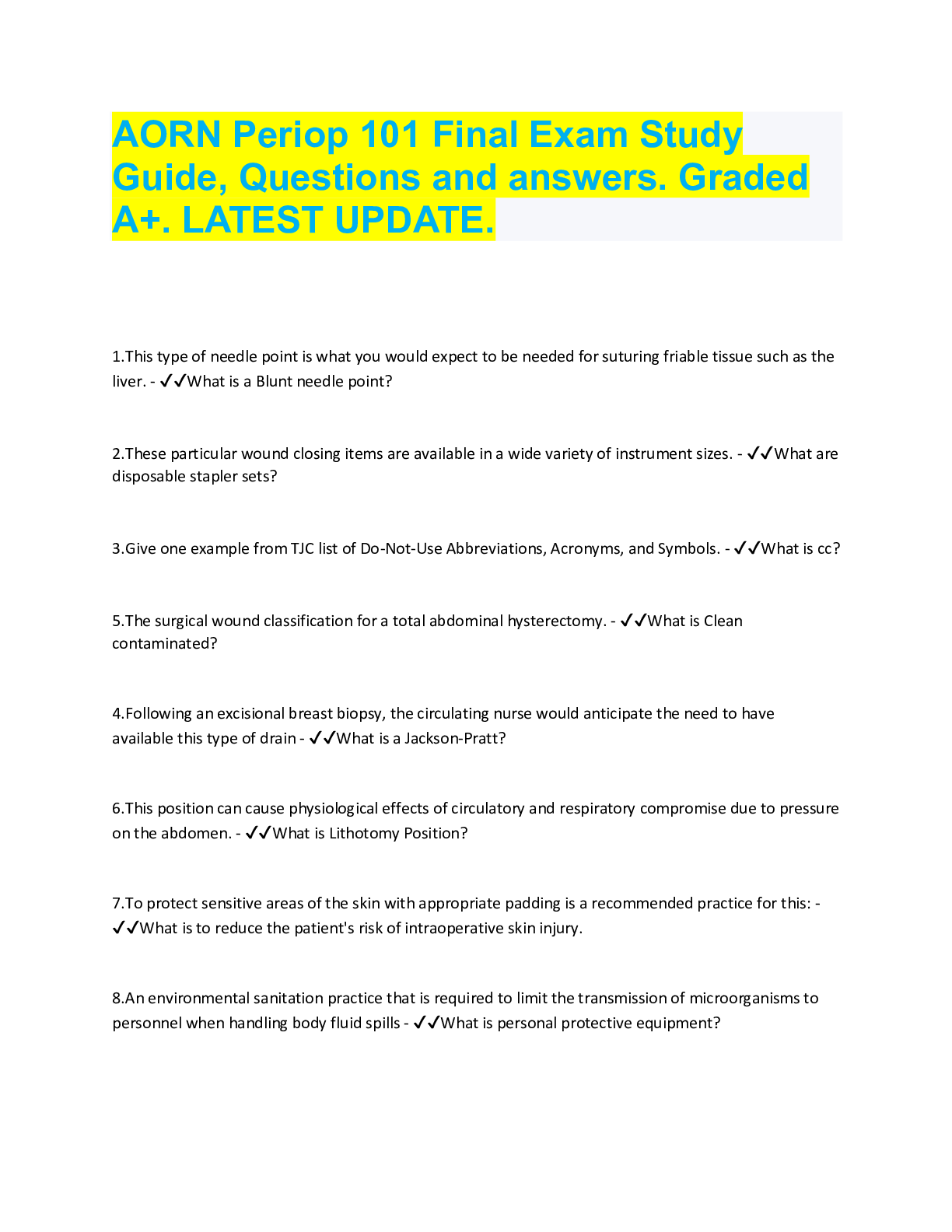
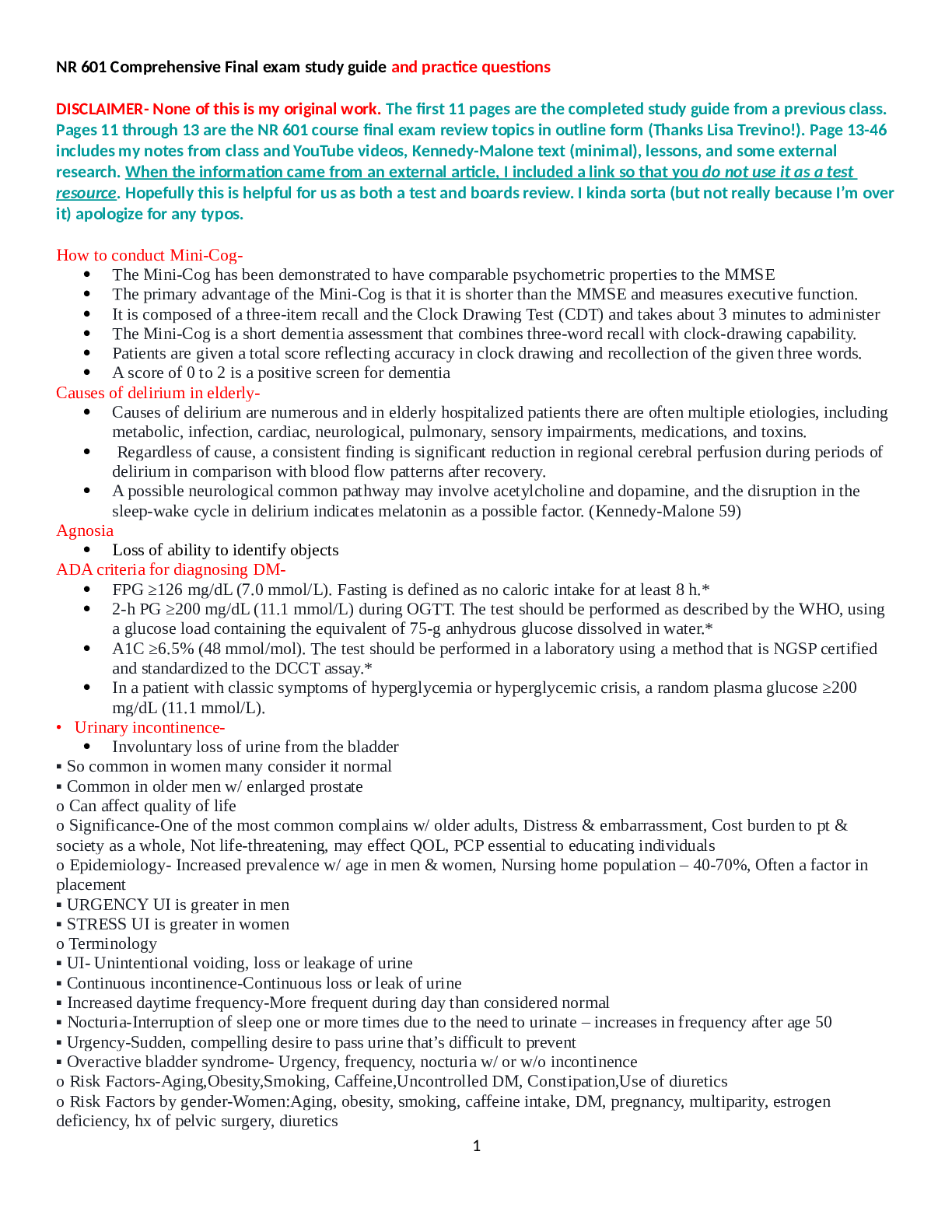
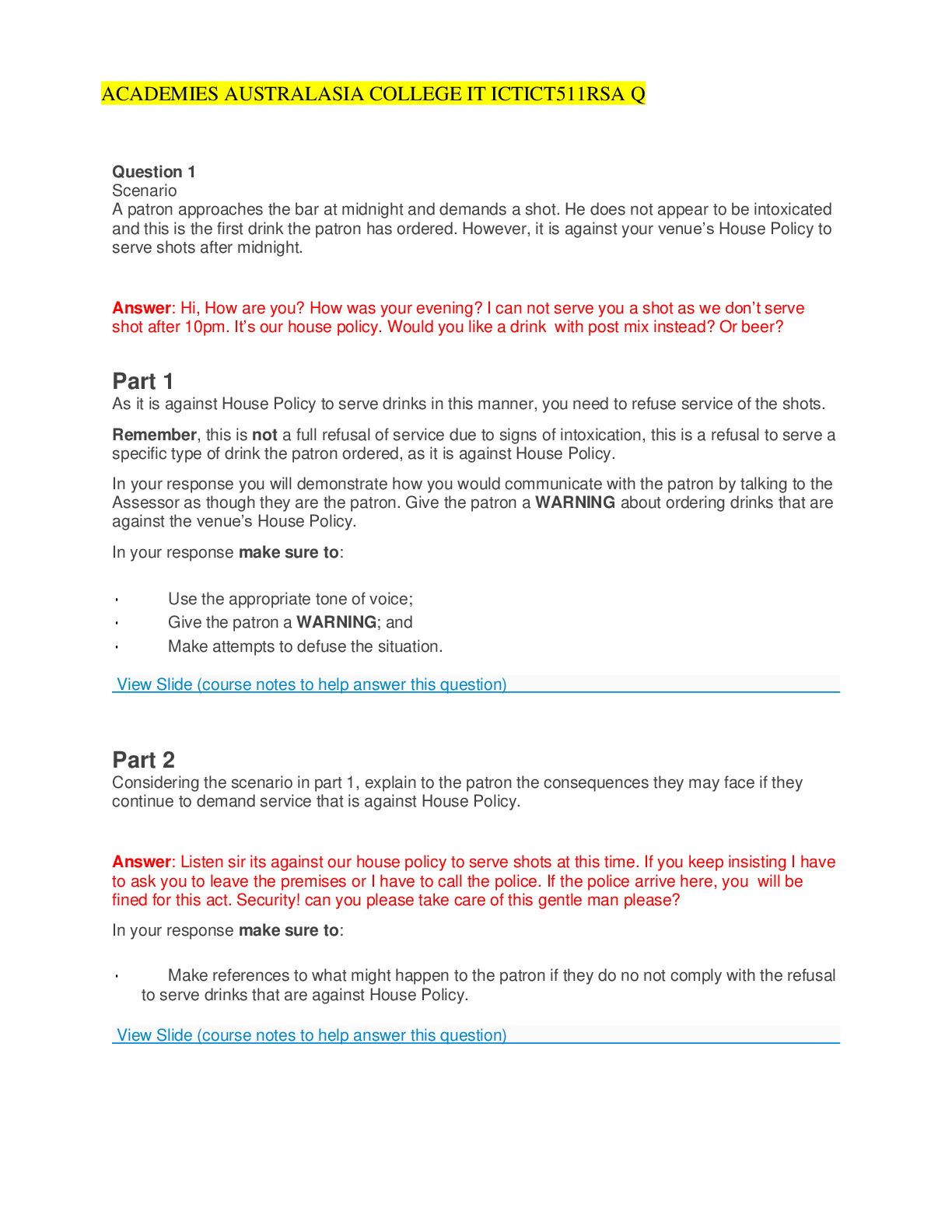
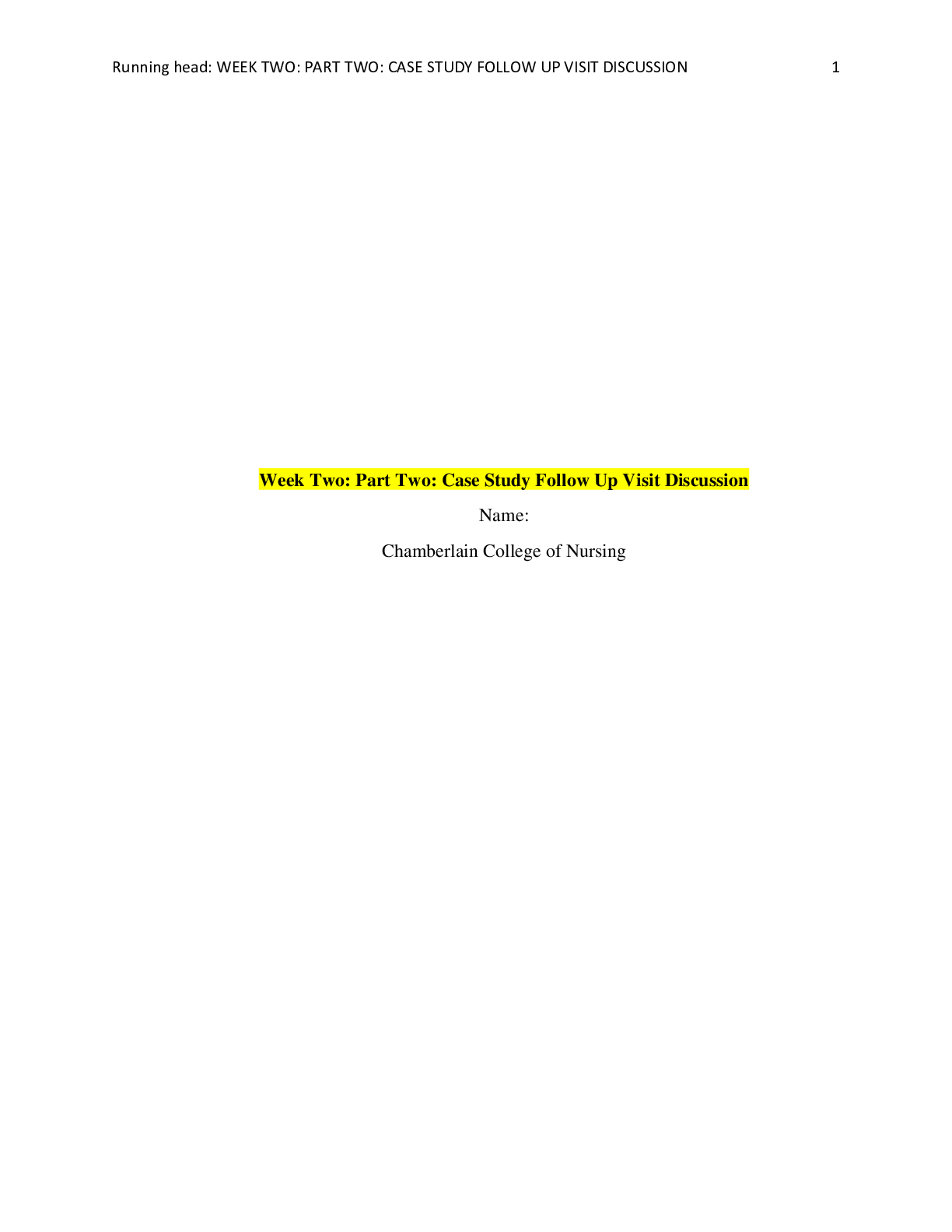

.png)


